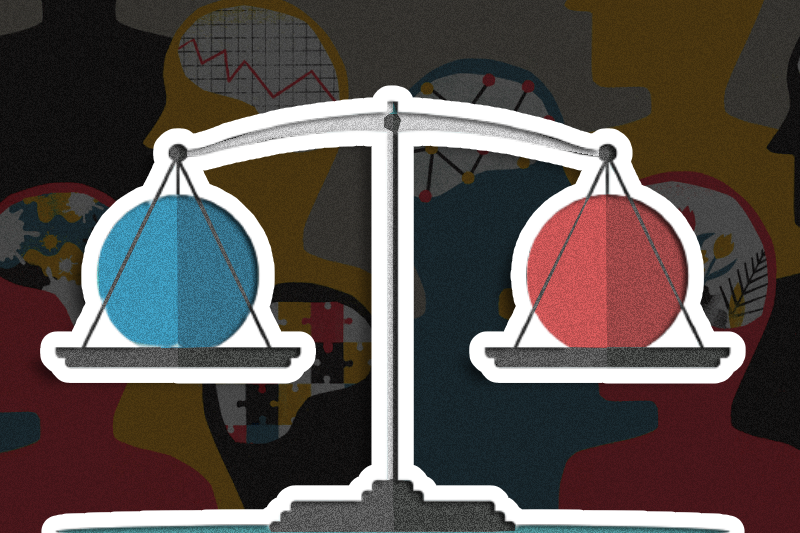

World Mental Health Day 2021


At times like these, when a pandemic has strongly hit the entire world, it becomes all the more necessary to talk about mental health and equality in distribution of mental health rights. The Covid-19 pandemic has impacted one’s mental well-being more than their physical health, confining them to their limited mindsets.
The World Health Organisation also describes mental health as the state of well-being in an individual where they realise their own abilities to handle or cope with normal stress. Even though there has been tremendous effort in recent years to put focus on mental health, the work related aspect still seems to be unresolved.
With such a serious issue of mental health already being rarely touched upon, equality in granting mental health is further taking a serious toll on people. Equality is not restricted to some written laws but the issue transforms to a bio psycho social model where there is stress on mental health problems influenced by various factors.
The factors that result in stress range from genetics, environmental factors, the way we lead our life and many others. Some of the communities which are more vulnerable than the others become more susceptible to experiencing inequality when it comes to mental health.
There are no provisions for them to talk to someone about their stress and even if there are facilities, they are so expensive that they do not cater for the majority of the population. This unequal distribution of risks is known as the mental health inequalities.
With people already suffering with issues such as hunger, poverty, social responsibilities and much more, social inequality when it comes to mental health is more threatening than ever. But we tend to focus more on obvious issues of bullying, sexism and social exclusion but we tend to forget that they all result in mental health issues.
Social inequality is the worst nightmare of any one already suffering with vast ranges of problems in their lives. The worst part of all this is that for some people, to even thrive for equal opportunities has become distant hope. Major reasons for this include obstruction to physical health, marginalisation of minority groups.
Many reports and researches have also shown that there is a deep connection between poverty and mental health and one often results in the other. Poverty or exclusion from society comes with stress, causing more mental health problems adding to the already existing ones. Hence the theme of this year’s Mental Health Day, celebrated on October 10, has been chosen as ‘Mental Health in an Unequal World’. Last two years have become more unequal than before as people have witnessed loss of lives, physical distancing and social isolation and much more troubles, making them more prone to mental health issues.
In a controversial plan, The Trump administration is considering deporting migrants to Libya by U.S. military flights, three U.S. officials…
In a landmark legal victory, Meta Platforms has won a settlement against Israeli spyware firm NSO Group for $168 million…
South Korea has unveiled a preferential immigration program, the Top-Tier Visa Program to recruit highly skilled foreign nationals in high-tech…
The American jewellery industry is a pillar of the luxury goods market and is warning that the US was exploring…
Novo Energy, the battery manufacturing initiative co-founded by Volvo Cars and Northvolt, announced that it would cut 50% of its…
The Trump administration announced a national review targeting approximately 450,000 migrant children who crossed the US-Mexico border without their parents,…
This website uses cookies.
Read More